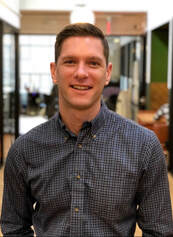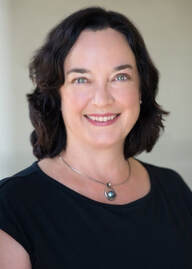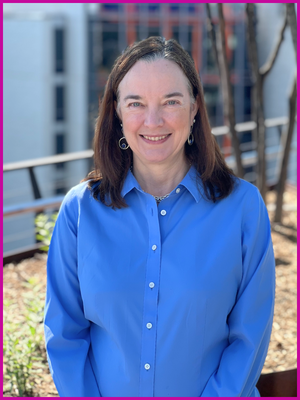 Brad Rathgeber Brad Rathgeber The Great Resignation continues. 21 million Americans left their job in 2021, with more than 4.5 million leaving last November alone, and trends continuing into 2022. We see turnover reflected in independent school job boards, too, with one regional independent school association director telling me that their job board postings were up more than 30% over the prior year. We’re starting to understand why people are leaving. Pew Research did an extensive study on this, as have others. And, there’s no shortage of advice on what employers can do to combat the Great Recession: adopt a marketing mindset, embrace transparency and diversity practices, get rid of toxic workplace culture, pay people more. What about just designing work that people love? That simple idea (more positive focused, and more people focused) really appeals to me and is the premise of a Harvard Business Review article from leadership consultant Marcus Buckingham. So, how can Academic Leaders understand whether people love to work at their school? Start with three questions, says Buckingham, to better understand employee retention, engagement, inclusion, and more:
By listening to and learning from the answers, Academic Leaders can build capacity for everyone in our schools to thrive and increase their capacity to build and lead an effective team.
0 Comments
There are direct parallels between my role with my club and your work as Academic Leaders. As Academic Leaders, you work hard to make sure that it’s the teachers and students who should and do shine brightest at the end of year ceremonies, all eyes on their accomplishments. There’s a name for what you do, Academic Leaders–some call it servant leadership, but a better description is “service leadership” or leadership in service to a mission. It’s a term that gets bandied about too casually, and is sometimes even an excuse for forgetting to honor the supportive leaders who make so much of what’s right about our schools happen. When we published our Academic Leader Competencies, I knew there were parallels to service leadership. In fact, you could say that all association work is this type of leadership work. There’s an old BASF commercial "We don't make a lot of the products you buy. We make a lot of the products you buy better." That phrase describes our ethos towards work we do for academic leaders and schools. In my career, the most rewarding work I’ve done is when I strive to elevate others. I learned quickly that leadership wasn’t about me, or how much I knew, or my ideas. Instead, it was about surfacing and nurturing expertise and innovation in others. During my time as a learning specialist and technology integrationist, I began to see the big picture of the school mission embodied as I supported students in learning in multiple disciplines. Often these were students who struggled to understand their gifts and share them with the world. Later, as an academic dean, and then as a dean of teaching and learning, I supported teachers who had deep expertise in disciplines in which I had no such knowledge. My role was to support them in continuing to inspire students by helping them learn new pedagogical strategies to increase their impact in delivering on our mission. When parents say they chose their child’s school because of the excellent teaching, that’s an unspoken endorsement of the academic leadership as well, even if the parent doesn’t realize it. But, Academic Leaders, we here at your association see it and honor you. During this time when the eyes at school will be focused where they should be, know that ours are on you, celebrating your work and tireless efforts in helping all those stars shine. One Schoolhouse is proud to announce that Sarah Hanawald will be awarded the ATLIS Pillar award at the Association of Technology Leaders in Independent Schools 2022 annual conference.
It’s been too long since we’ve been able to observe spring school traditions and celebrations in person. We’re at the conclusion of our third disrupted academic year, with fatigue running high. We’ve talked about the different ways this has taxed Academic Leaders–decision fatigue and compassion fatigue, among others–all culminating in unprecedented levels of staff turnover. We need some good news.
So here it is: this is the moment for educators to re-experience the pride and joy that comes from watching your students take the stages that are finally open to them once more. Spring showcases with full audiences, off-campus projects for seniors, award assemblies with parents in attendance–all of these are opportunities to renew and remind ourselves of what we love about belonging to school communities. Most of us on the One Schoolhouse team experience this vicariously, but Curt Brossman, our Controller, has been experiencing it in person. As the coach of the University of North Carolina Cheerleaders, he had the opportunity to travel with his athletes as they supported UNC’s basketball team throughout their run to the Final Four, an experience Curt describes as “a fantastic blur!” “From Fort Worth to Philadelphia to New Orleans, our team was there every step of the way. Our seniors, especially, have trained hard over the past two challenging years, with none of the typical rewards.” That’s a universal experience in schools right now–over three years, we’ve watched our actors perform without a burst of appreciative applause at the end, or seen students miss out on hands-on and collaborative projects that typically serve as capstones. For Curt, and for the entire UNC coaching staff, seeing their students’ hard work and patience pay off in front of more than 70,000 fans in the Superdome “was amazing. I could see pure elation and enjoyment in their performances, after wins and losses alike.” The opportunity to demonstrate achievement isn’t just important to your students. It also makes a difference to every single person who watches them, to every educator who had a role in their success. This spring, let yourself be reminded why you love schools. When you witness their accomplishments, you can see the evidence of your work over the past three disrupted school years. We’ve all made it–together.  Peter Gow Peter Gow I’ll come clean: two of my own children, perhaps genetically predestined by both parents’ status as fourth-generation educators, have taken up the family trade. One is in higher ed, and the other has toiled through the pandemic in a couple of long-term independent school substitute positions—one that ended as the school downsized in the first wave (lots of international students who couldn’t return), the other that began as a single term and is now nearing the end of its full second year. It is a little ironic, then, that a couple of weeks ago he needed his own substitute as he languished at home with his own case of Covid. Happily he wasn’t all that ill, and in time his tests came out negative. But there was a certain amount of parental consultation on plans for his colleagues filling in—what to do as a middle-school humanities teacher who sometimes sees the same group of students for two and even three periods in a day. This got me thinking, pretty hard, about “substitute plans.” We’ve all been reading quite a bit lately about the challenges facing schools around staffing and just identifying and preparing substitute classroom teachers. Creating a substitute pool is a topic for another day and for experts who have actually been doing it as the coronavirus has picked away at the health, morale, and stamina of the teaching force. But, consider the “substitute plan”: that lesson plan (will it fill the period? is it gonna be doable by the sub, whoever they may be?) cobbled together by an often suffering teacher late in the night or early in the morning—often followed by a “rinse, repeat” cycle for days on end. And let us stipulate that having the time and energy to concoct a few days’ worth of plans all at once is a dubious luxury, as this is sadly likely to reflect some truly unwelcome interlude in a teacher’s life. Hasn’t every teacher called or sent in a “sub plan” that has just felt like too little, too late? But there is a better way, and the basic technology of a learning-management system can facilitate this. Why not use this tool, or whatever analog your school might offer, to pre-build learning experiences that are novel, stimulating, and germane to the discipline without necessarily needing to be bound to a curricular plan and that can be tapped as needed due to personal or family exigency? Why not give students the opportunity to engage in disciplinary thinking while trying out their adaptive expertise on new topics? Simply stated, we could ask teachers to generate open-ended, perhaps project-, place-, or problem-based mini units that are, if not exactly self-managing, easily housed with all resources in the LMS and that require minimum management by a substitute teacher. But how can one design such a thing without knowing WHERE in the calendar of the curriculum it might be needed? We believe that part of the backbone of academic rigor (a concept that always seems to be in play when “substitute teachers” are part of the conversation, alas for those poor souls) is real-world application of basic disciplinary procedures and principles. The world is rife with ill-defined and complex problems on which students can exercise the creative application of classroom learning in all subjects, and the challenges can be tapped—yes, perhaps superficially, as we are not expecting our students to cure major diseases or resolve the cold nuclear fusion question—for some engaging, meaningful, and even lasting learning. Let’s look at the reality: How often in the course of just about any curriculum at any level are students invited to use what they are learning in “real world application”? How often do we avoid offering students “complex problems” because our well-crafted scaffolding always seems to require a bit more prior knowledge? But if you’re a science teacher, aren’t there real-world problems, perhaps involving a bit of research easily managed within the classroom and then some data analysis, that any reasonably well-prepared students could tackle? Does the opportunity to “think like a real scientist” only come as part of upper-level secondary coursework? Could you, O Science Teacher, concoct a contained, perhaps several-day project that your students could be doing more or less on their own that would provide opportunities to look at some aspect of the world as a scientist does and then break this down using whatever essential skills and “scientific dispositions” your charges have acquired, whatever their grade level or age? (Have you ever looked at the questions on the ACT Science section and envisioned the learning that would help students approach these with confidence and skill?) Global language courses are highly sequential, yes, but could a little unit be devised and socked away in the LMS that focused on some aspect of culture and a modicum of target language use, suitable for application as needed, whether in September or May? Math teachers, are your students all experts in reading and analyzing graphs and data tables and drawing appropriate conclusions? Would a little more practice, perhaps inspired by some real-world data (The Economist magazine loves its visual displays of information, by the by) be such a distraction from the quantitative thinking they might be doing in the established curriculum as to be without value? The fields of history and social studies are filled with significant little incidents and curious characters, too granular perhaps for the textbooks, that could inspire some compelling short-term work. Take a tip from the Advanced Placement and assemble some documents or other kinds of texts that might spark some deep analysis of perspectives and sources, and ask students to parse their content. I can imagine doing this with second-graders or final-term seniors and their both learning from and enjoying the experience. English classes could take a similar approach, or just focus on a single author or text. Here, as everywhere else, duh, lie opportunities for student collaboration—in researching, in work-shopping writing, in presenting—that won’t require the substitute to dress in a lion tamer’s red blazer top hat, cracking a whip and brandishing a chair to maintain order. I’ve already stepped outside my own areas of disciplinary expertise (sorry, math and science folks), but I am dead certain that the visual and performing arts teachers I have known and the specialists in teaching non-native-English-speakers I have worked with could devise wonderful, wonderful things. And for academic leaders, just knowing that every teacher has one (or two or maybe three, just to be safe) of these units “in the can” and ready for use would be a stress-reducer, removing at least one layer from the burden of setting up substitute teachers on the fly every day. For the teachers themselves, I can imagine the fun and satisfaction that could come from building these little units/classes/whatever-you-call-’em. They could start with something about their field or discipline that tickles them personally, or something that they just wish “there was time to do” in the regular curriculum. Because, properly framed and neatly executed, these “sub plans” would elicit serious disciplinary thinking, the exercise of essential disciplinary skills, and the chance to apply learning to novel topics and situations. And that, friends, is what we want our students to be doing, isn’t it?  Sarah Hanawald Sarah Hanawald At the end of last month, my local garden supply store delivered an enormous quantity of a rich mix of compost and garden soil to the top of my driveway. This past weekend, I began the process of digging out and then replacing the soil in my raised beds–on the advice of a master gardener after I shared my disappointments with last year’s tomatoes, even though I did everything “right.” (As a granddaughter of farmers, I’ve got a lot of years of backyard vegetable gardening under my belt.) After two days of physical labor, I’m experiencing the “Muscles are sore that I didn’t even know I had” syndrome. Ibuprofen is my friend as I write this on my couch. Over the past three years, Academic Leaders have been flexing in new and different ways too. They’ve been using their problem solving “muscles” or competencies. And while they’ve got some aches and pains that ibuprofen can’t help, they’ve also got new-found strengths. There’s a name for the process of drawing on competencies composed from your prior knowledge and previous experiences while you’re stretching yourself in new ways: Adaptive Expertise. A number of years ago, Matt Gossage, then the head of Cannon School, shared the term with me. Over the years, I’ve found it to be an incredibly useful term, because it describes a trait that effective academic leaders have in spades, even if they don’t know it. For a quick definition: adaptive experts are those who effectively develop solutions for problems that have never been seen before, calling upon their prior knowledge and using a growth mindset to transfer their expertise into a new domain or scenario. There are examples of adaptive experts in many domains. Just a few highlights include the NASA scientists who designed a plan to rescue trapped Chilean miners, or an airline pilot making an emergency landing in unknown terrain. More typical examples happen in work and life regularly, such as when a distillery begins manufacturing hand-sanitizer, or even the mundane work of turning the refrigerator’s contents into dinner. The key to being an adaptive expert is to have an understanding of the competencies one has, and consider how to flex those competencies to solve emerging challenges. That’s something that takes more than just seeking new knowledge. Adaptive experts need to be open to practice, willing to take risks, and open to feedback. Let’s consider one competency in action. Communicate Effectively Across Multiple Domains is a competency many of us have grown into as we’ve mastered leading video meetings with students, parents, and colleagues. What’s the next step for this competency? Several members of our Advisory Council are leaning into the idea of being adaptive experts by transferring their communications skills into leading online peer conversations, co-facilitating classes for fellow academic leaders, or offering their insights in webinars that will become part of our resource library. We often develop adaptive expertise in a crisis, but there’s a special strength that comes when we add meaningful intention. Do you have an area of expertise that you’re ready to transfer to a new domain? This doesn’t always mean a new role, but perhaps you’ll take on a new challenge or collaborate with a peer in a different area of the school on a new project. |
Don't miss our weekly blog posts by joining our newsletter mailing list below:AuthorsBrad Rathgeber (he/him/his) Archives
July 2024
Categories |


 RSS Feed
RSS Feed